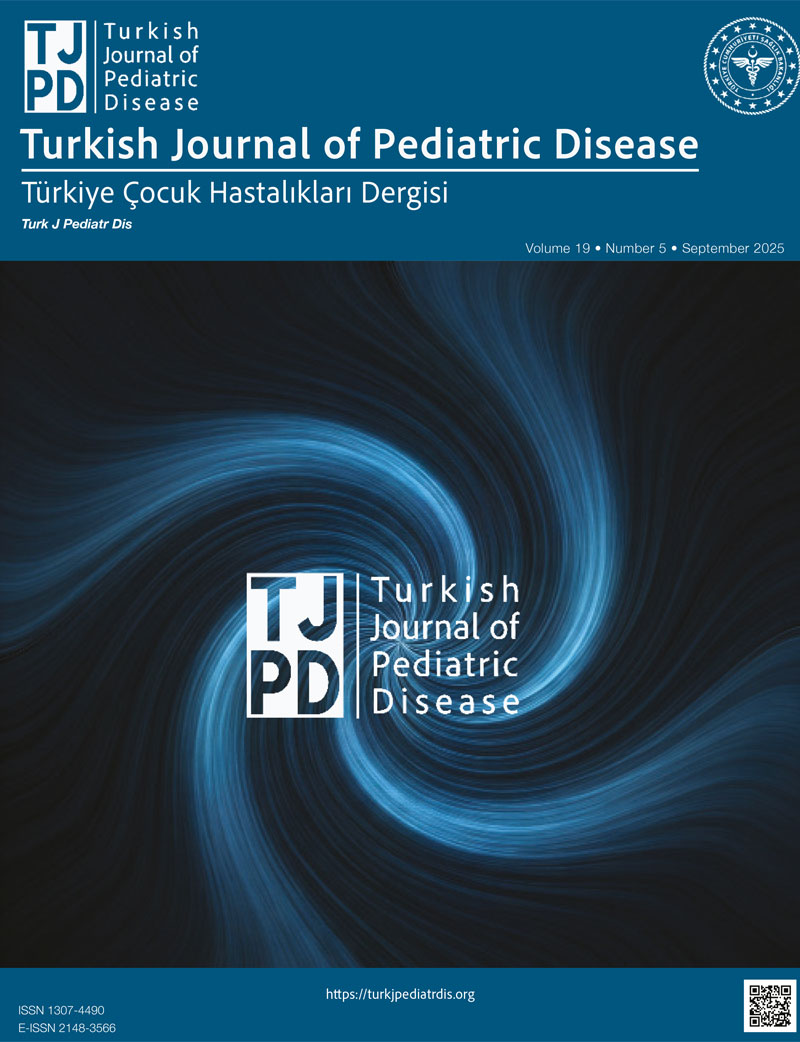Abstract
Objective: The aim of this study was to identify factors associated with exam anxiety that may contribute to exam anxiety in children and adolescents who present to the clinic. Additionally, this study planned to compare the attitudes and behavior dynamics of individuals with exam anxiety and co-occurring psychiatric disorders with those who have isolated exam anxiety using the Beier Sentence Completion Test (BCT).
Material and Methods: The study sample consisted of girls and boys aged 8-18 who presented to the Child and Adolescent Psychiatry Outpatient Clinic of Health Sciences University Ankara Training and Research Hospital between January 1, 2019, and December 31, 2019, with complaints of exam anxiety. The BCT, the Children’s Anxiety Disorder Screening Scale (SCARED), and the Children’s Depression Scale (SCARED) were administered to the patients.
Results: The BCT-negative total score of the exam anxiety and comorbid diagnosis group was significantly higher than that of the control group (p=0.001). The BCT-neutral total score of the exam anxiety and comorbid diagnosis group was significantly lower than the control group (p<0.001). The distribution of the BCT self- and ability-related attitude in the exam anxiety group was significantly more negative (p=0.008). The distribution of the BCT attitude toward the mother in the exam anxiety group was significantly more negative (p=0.012).
Conclusion: Exam anxiety is a common public mental health issue in Türkiye, a country where exams and testing are frequent. Children and adolescents with exam anxiety tend to interpret external stimuli more negatively, with neutral interpretations being less frequent. The negative evaluation of one’s self and abilities is an important factor that clinicians should consider. The negative attitude toward the mother in relation to parental attitudes emphasizes the role of parental attitudes in exam anxiety.
Keywords: Anxiety, Exam, Projective Techniques
References
- Zeidner M. Test anxiety: The state of the art. New York, NY: Springer Publishing; 1998.
- Putwain D, Daly AL. Test anxiety prevalence and gender differences in a sample of English secondary school students. Educational Studies. 2014;40(5):554-570. https://doi.org/10.1080/03055698.2014.953914
- Thomas CL, Cassady JC, Heller ML. The influence of emotional intelligence, cognitive test anxiety, and coping strategies on undergraduate academic performance. Learn Individ Differ. 2017;55:40-48. https://doi.org/10.1016/j.lindif.2017.03.001
- Putwain D, Symes W. Perceived fear appeals and examination performance: Facilitating or debilitating outcomes? Learn Individ Differ. 2011;21(2):227-32. https://doi.org/10.1016/j.lindif.2010.11.022
- van Loon, A. W. G., Creemers, H. E., Vogelaar, S., & Asscher, J. J. (2025). What works for whom? The influence of problem severity, maladaptive perfectionism, and perceived parental pressure on the effectiveness of a school-based performance anxiety program. Behavioral Sciences, 15(4), 436. https://doi.org/10.3390/bs15040436
- Sarıkaya S, Gemalmaz A. Sınav kaygısını etkileyen faktörler. J Turk Fam Physician. 2021;12(2):99-107. https://doi.org/10.15511/tjtfp.21.00297
- Koç G, Çolak B, Tatlı SZ, İlhan RS, Öncü B. Beier Sentence Completion Test profiles of adolescents and emerging adults with internalizing and externalizing disorders. Adolesc Psychiatry. 2021;11:240-259. https://doi.org/10.2174/2210676611666211124144004
- Koç M, Yavuzer Y, Uğurlu O. An investigation of internalizing and externalizing behaviors in adolescents using Beier Sentence Completion Test. Turkish Journal of Clinical Psychiatry. 2021;22(1):45-52.
- Akkoyun F. Projective tests. Ankara, Türkiye: Nobel Akademi; 2014.
- Çakmakçı FK. Çocuklarda anksiyete bozukluklarını tarama ölçeği geçerlik ve güvenirlik çalışması. Uzmanlık Tezi, Kocaeli Üniversitesi Tıp Fakültesi, Kocaeli. 2004
- Öy B. Child depression scale: A validity and reliability study. Turk Psikiyatri Derg. 1991;2(2):132-136.
- Duyser FA, van Eijndhoven PFP, Bergman MA, Collard RM, Schene AH, Tendolkar I, et al. Negative memory bias as a transdiagnostic cognitive marker for depression symptom severity. J Affect Disord. 2020;274:1165-1172. https://doi.org/10.1016/j.jad.2020.05.156
- Ho SMY, Cheng J, Dai DWT, Tam T, Hui O. The effect of positive and negative memory bias on anxiety and depression symptoms among adolescents. J Clin Psychol. 2018;74(9):1509-25. https://doi.org/10.1002/jclp.22597
- Cody MW, Teachman BA. Post-event processing and memory bias for performance feedback in social anxiety. J Anxiety Disord. 2010;24(5):468-79. https://doi.org/10.1016/j.janxdis.2010.03.003
- von der Embse N, Jester D, Roy D, Post J. Test anxiety effects, predictors, and correlates: A 30-year meta-analytic review. J Affect Disord. 2018;227:483-93. https://doi.org/10.1016/j.jad.2017.11.048
- Sarıkaya S, Gemalmaz A. Factors related to exam anxiety. Jour Turk Fam Phy 2021;12(2):99-107. https://doi.org/10.15511/tjtfp.21.00297
- Xing XY, Wang GM, Li Y, Zhang WX, Shen XD. Current status and influencing factors of test anxiety of senior one students in Yanji, China: a cross-sectional study. Front Psychol. 2024;15:1414215. https://doi.org/10.3389/fpsyg.2024.1414215
- Lozano-Blasco R, Barreiro-Collazo A, Romero-Gonzalez B, Soto-Sanchez A. The Family Context in Cybervictimization: A Systematic Review and Meta-Analysis. Trauma Violence Abuse. 2024;25(3):2143-57. https://doi.org/10.1177/15248380231207894
- Lutz WJ, Hock E, Kang MJ. Children’s communication about distressing events: the role of emotional openness and psychological attributes of family members. Am J Orthopsychiatry. 2007;77(1):86-94. https://doi.org/10.1037/0002-9432.77.1.86
- Bögels SM, Brechman-Toussaint ML. Family issues in child anxiety: Attachment, family functioning, parental rearing and beliefs. Clin Psychol Rev 2006;26(7):834-56. https://doi.org/10.1016/j.cpr.2005.08.001
- McLeod BD, Wood JJ, Weisz JR. Examining the association between parenting and childhood anxiety: A meta-analysis. Clin Psychol Rev 2007;27(2):155-72. https://doi.org/10.1016/j.cpr.2006.09.002
- Núñez-Peña MI, Suárez-Pellicioni M, Bono R. Gender differences in test anxiety and their impact on higher education students’ academic achievement. Procedia Soc Behav Sci. 2016;228:154-60. https://doi.org/10.1016/j.sbspro.2016.07.023
- Günay O, Öncel ÜN, Erdoğan Ü, Güneri E, Tendoğan M, Uğur A, et al. State and Trait Anxiety Levels of the Last Class High School Students. Journal of Health Sciences. 2008;17(2):77-85.
- Khoshhal KI, Khairy GA, Guraya SY, Guraya SS. Exam anxiety in the undergraduate medical students of Taibah University. Med Teach. 2017;39(sup1):S22-S26. https://doi.org/10.1080/0142159X.2016.1254749
Copyright and license
Copyright © 2025 The Author(s). This is an open access article distributed under the Creative Commons Attribution License (CC BY), which permits unrestricted use, distribution, and reproduction in any medium or format, provided the original work is properly cited.






